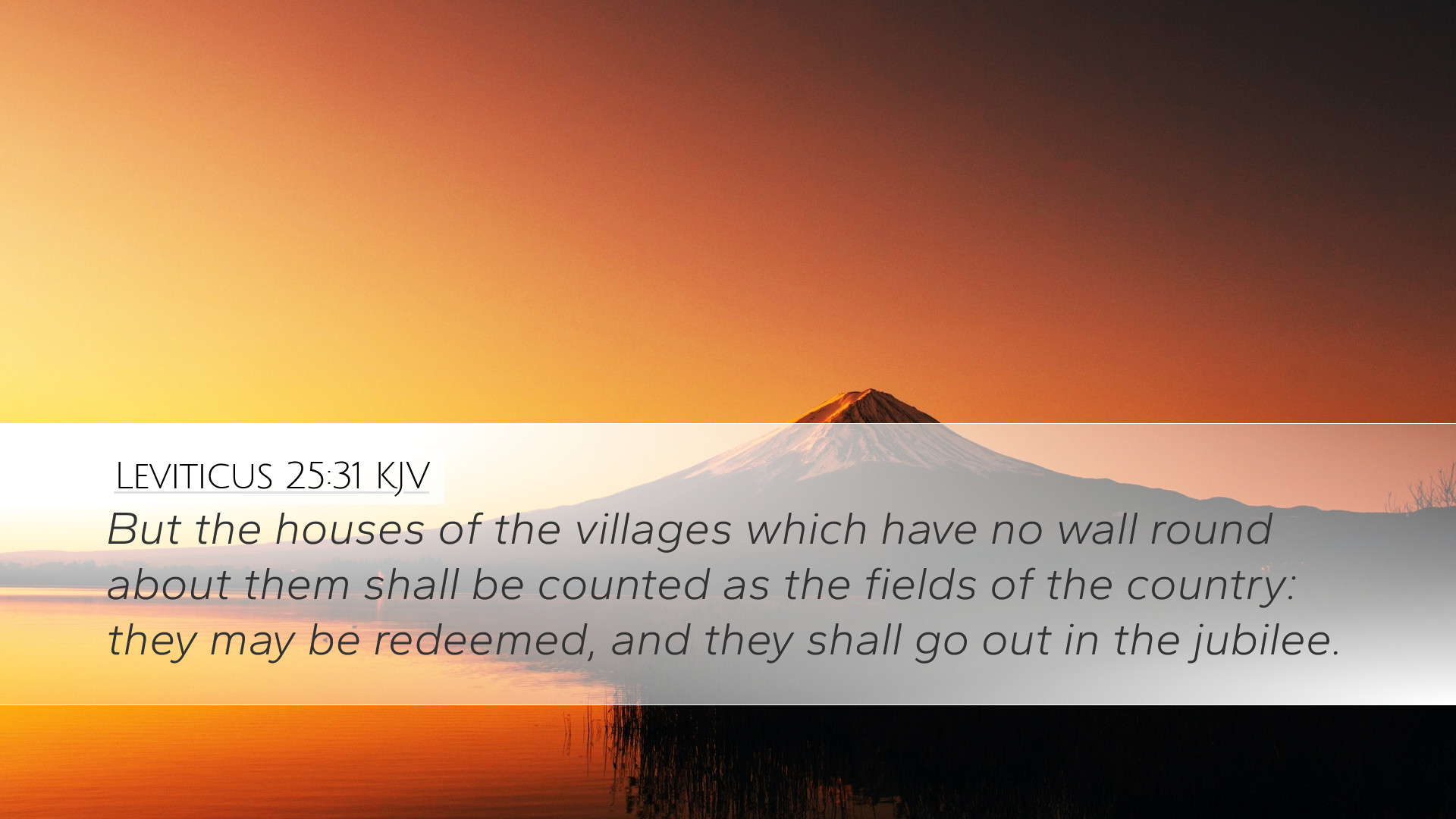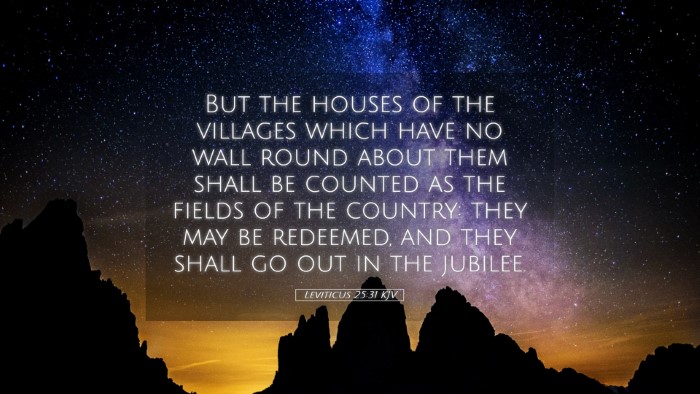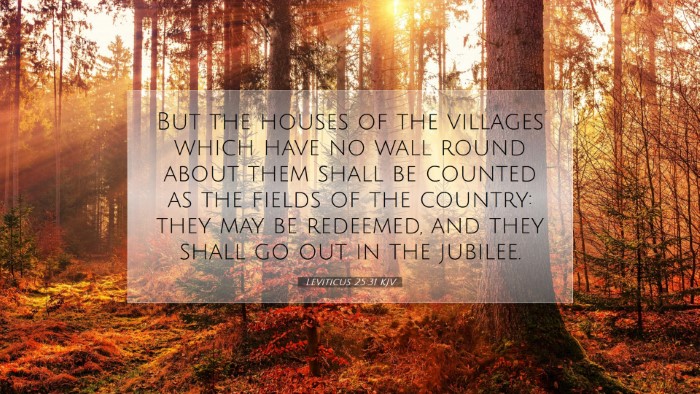Commentary on Leviticus 25:31
Bible Verse: "But the houses of the villages which have no wall round about them shall be counted as the fields of the country: they may be redeemed, and they shall go out in the year of the jubilee."
Contextual Background
The Book of Leviticus, primarily concerned with laws and rituals, reflects God's desire for His people to live in holiness and community. Chapter 25 introduces the concept of the Jubilee Year, establishing a cycle of rest, redemption, and restoration in Israel. In this verse, guidance is provided on property ownership and redemption, particularly concerning houses in unwalled villages.
Key Insights from Commentaries
-
Matthew Henry:
Henry emphasizes the significance of walls in determining property status. He notes that walled cities represented security and permanence, while unwalled houses lacked the same value. Homes without walls are likened to fields and are treated differently in the context of redemption rights. This distinction highlights God’s provision for the economic and social stability of His people, ensuring that even the more vulnerable can regain their property during Jubilee.
-
Albert Barnes:
Barnes elaborates on the concept of redemption, explaining that a house in a walled town could not be re-possessed in the same manner as those in villages. He points out that this system safeguards those who might otherwise lose their homes due to economic hardship. This provision served a dual purpose: it maintained socio-economic balance in the community while affirming the principle of freedom and redemption central to the Jubilee tradition.
-
Adam Clarke:
Clarke provides a practical interpretation of this verse, focusing on the implications of economic vulnerability. He indicates that the allowance for redemption of unwalled houses reflects God's heart for mercy and justice, recognizing the different circumstances of individuals. Clarke also relates this principle to ethical teachings, suggesting that the soul's redemption from sin parallels the redemption of property, revealing a deeper spiritual truth about God's desire for restoration.
Theological Implications
The emphasis on redemption within community life as outlined in this verse underscores several important theological concepts:
-
Divine Justice:
God’s laws aim to uphold justice and fairness, especially for the marginalized. The ability to redeem homes reflects a divine concern for every individual’s right to live and thrive within the community.
-
Covenant Community:
This regulation reinforces the idea of Israel as a covenant community, where members are responsible for one another, emphasizing interdependence and mutual support.
-
Spiritual Redemption:
Redemption in a physical sense parallels spiritual redemption available through Christ. Just as God desires to liberate the physical property of His people, He desires to liberate their souls from sin.
Application for Pastors and Theologians
This verse offers rich insights for pastors when addressing themes of stewardship, community support, and God's overarching justice. The principles drawn from Leviticus 25:31 can guide discussions on modern economic disparities and the church's role in advocacy for social justice. Theologically, reflecting on redemption can enrich pastoral care strategies, providing a framework for helping congregants understand their identity as restored individuals who reflect Christ's love in their communities.
Conclusion
In conclusion, Leviticus 25:31 not only provides a regulatory framework for Israelite society but also reveals profound truths about God’s character. The call for redemption in unwalled houses signifies God’s concern for human dignity and community integrity, offering both spiritual and practical applications for believers today.


